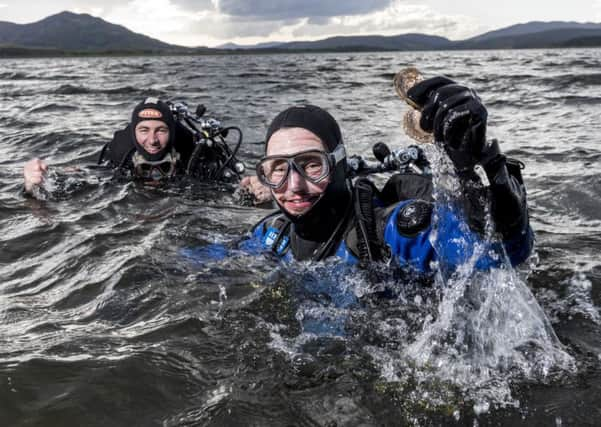Wild oysters back in Dornoch Firth after 100 years


The reintroduction of oysters comes alongside the opening of a £6 million new anaerobic digestion plant at the site, which will purify waste from the distilling process and create gas to power the still.
Glenmorangie has made whisky by the Dornoch Firth for nearly two centuries.
Advertisement
Hide AdAdvertisement
Hide AdThe estuary, a designated conservation area, is home to a wide variety of wildlife, including seabirds, otters, dolphins and harbour seals.
Native oysters thrived in the firth for the past 10,000 years, before being decimated in the 19th century by over-fishing.
Restored oyster reefs will improve biodiversity and act in tandem with the anaerobic digestion plant to purify the by-products of distillation.
The reintroduction involved 300 wild oysters being taken from the west coast and placed at two sites in the firth. It’s hope a reef will be established within five years.
Glenmorangie is the first distillery to embark on such an initiative, which is being carried out in collaboration with the Marine Conservation Society (MCS) and researchers from Heriot-Watt University.
Hamish Torrie, director of corporate social responsibility for the whisky firm, said: “Glenmorangie’s Distillery has stood on the banks of the Dornoch Firth for over 170 years, and we want to ensure that the Firth’s pristine habitat will be preserved and enhanced over the next 170 years.
“This restoration of oyster reefs in the Dornoch Firth, which is an internationally recognised special area of conservation, will help us realise our long term vision of a distillery in complete harmony with its natural surroundings.”
Calum Duncan, head of conservation in Scotland for MCS, said: “Great strides have been taken in recent years to put in place new sites and measures to help improve the health of Scotland’s seas.
Advertisement
Hide AdAdvertisement
Hide Ad“Active reinstatement of living seabed habitats such as oyster reefs can play a crucial role in ocean recovery, which is why we are delighted to be part of this partnership and look forward to a successful trial paving the way for larger-scale restoration.”